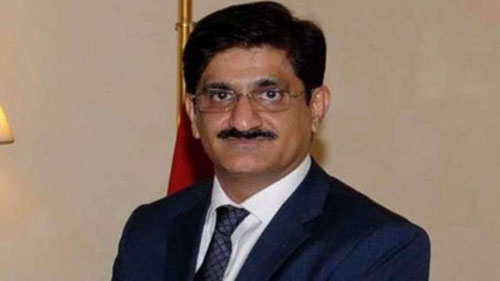The Chief Minister of Sindh, Murad Ali Shah, presided over an important meeting of the Board of Revenue to discuss the digitalization and re-recording of land records. The meeting was attended by Chief Secretary Asif Hyder Shah, Principal Secretary to the CM Agha Wasif, Senior Member of the Board of Revenue Bakhtiar Ullah Anwar, Member of the Board of Revenue R.S. and E.P. Ghulam Abbas Naich, Special Secretary G.A. Zaman Narejo, Saif Ullah Abro, and Member of R.N.S. Mohsin Shah. During the meeting, Murad Ali Shah emphasized the need to end the manual process of land record maintenance that has been in place for the last 60 to 70 years. He stated, “The manual process must be abolished in every possible way.” He further noted that Records of Rights (RoR) are usually re-written every 30 years, and the last revision occurred in 1985. However, Asif Hyder Shah, the Chief Secretary, revealed that the records were only scanned and stored, which failed to benefit the public.
The Chief Minister highlighted that despite the re-recording in 1985, citizens continued to struggle with tehbaidars (land revenue officials) and Mukhtarkars (officials of land records), getting entangled in court cases. In the period between 2019 and 2020, the Board of Revenue had blocked more than 496,000 suspicious entries after reviewing the records. However, the CM expressed concerns about these actions, emphasizing that “Records of Rights are legal documents that should not be labeled as suspicious without hearing both parties involved.”
The CM also pointed out that 0.5 million people who held land ownership rights were subjected to issues due to the board’s failure to meet legal requirements. He directed the Chief Secretary to ensure that rightful landowners receive their due rights, urging the adoption of a complete legal process before blocking any entries. The CM reiterated that the re-writing of records is essential for transparency and protection of property rights, adding that this would lead to online services for land registration and re-recording. He instructed the Board of Revenue to streamline the process of re-recording and design a simplified digital form for easier verification.
The CM ordered the Board of Revenue to present a digital form design within two weeks, followed by the pilot digitalization of records from one urban area in Karachi and one rural union council. He also stated that the Sindh government would amend relevant laws to facilitate the re-recording process. Furthermore, the CM directed the establishment of a new IT company under the Sindh government to develop the required software within four months. He emphasized that the modern digitalization of records would make the process more accessible and eliminate the need for people to face court proceedings and other issues related to land records.










